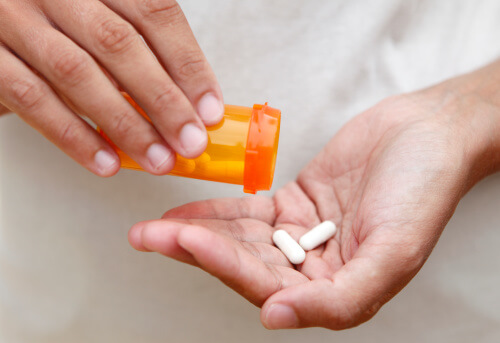The drug Oxycodone has been around since the 1920s. While Oxycodone addiction may have been a concern a century ago, it is an increasingly modern problem. Understanding how Oxycodone addiction develops, as well as what it entails, can be important in treating this particular drug addiction.
What is Oxycodone?

Oxycodone is a pain relief medication. It is a synthetic opiate that is very similar in makeup to morphine. Oxycodone has legitimate medical uses, and it can be used in cases where patients have extreme pain and need relief. This is most common after surgeries or major accidents.
While Oxycodone might be a prescription medication, it is also widely used as a recreational drug. Individuals who are addicted to opiates might use Oxycodone and heroin interchangeably because both can satisfy an opioid addiction.
Oxycodone comes in multiple formats. Most common is an extended-release tablet, which helps delay the effects of the drug. However, some individuals crush and snort or inject these tablets for a more pronounced high. Liquid Oxycodone is also prescribed in some cases.
OxyContin vs. Oxycodone
These two names are often used interchangeably, but there is a difference between OxyContin and Oxycodone. Oxycodone is the generic name for a specific type of opioid painkiller. Oxycodone can be formulated in varying doses, and it can be mixed with other ingredients like ibuprofen.
OxyContin, on the other hand, is a name brand version of Oxycodone. It contains only one ingredient: Oxycodone. As a result, it is typically very strong, and it may be more potent than other prescription opiates that are diluted or mixed with other ingredients.
The Development of an Oxycodone Addiction
Oxycodone and OxyContin addictions are a serious problem for a number of different reasons. The drugs themselves are highly addictive, and they are also overprescribed. There may also be cultural, societal and genetic factors at play that can foster the development of an addiction to opiates.
While Oxycodone can be beneficial in some medical cases, many professionals in the medical industry believe that it can do more harm than good. When patients are prescribed Oxycodone as a painkiller, they might take it improperly. Taking a larger than necessary dose, or taking the drug for longer than necessary, can lead to addiction. There are also some doctors that prescribe Oxycodone even when it is not needed by patients.
It is important to understand that not everyone who is prescribed Oxycodone will become addicted to opiates. Since addiction can be at least partially hereditary, it is more likely for those with addiction in the family to eventually become addicted to Oxycodone themselves. Those exposed to drugs at an early age are also more prone to becoming addicted.
Signs of Addiction to Oxycodone
Whether you are identifying addiction in yourself or in a loved one, there are some signs that can make it clear. A few of the most common signs of an Oxycodone addiction include the following:
- Constipation
- Odd sleep patterns
- Visiting multiple doctors or dealers to obtain Oxycodone
- Difficulty maintaining a career or relationships
Treating an Addiction to Oxycodone
After recognizing or identifying an addiction to Oxycodone, it is time to take action. Quitting the drug, going to a rehab program and committing to a lifetime of sobriety are the keys to success.
After completing a detox, residential treatment is often ideal. This is an intensive approach that offers 24/7 accountability and medical attention.
In rehab, patients also have the opportunity to seek out the right treatment to help them achieve lasting sobriety. This might be trauma therapy, or it could be a dual diagnosis treatment. Also important will relapse prevention, which can help patients maintain their sobriety for a lifetime.
Combatting an Oxycodone addiction isn’t easy, but the right treatment can make a big difference. At Healing Springs Ranch in Tioga, Texas, custom treatment can get to the heart of an opiate or painkiller addiction and help you find sobriety. To begin your journey to recovery, call 866-656-8384 today.
